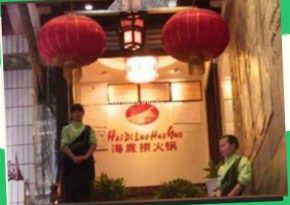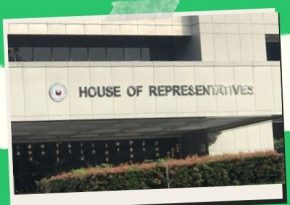
Philippines: The Retail Trade Liberalization Act was amended and signed into law.
President Rodrigo Duterte signed Republic Act No. 11595 (“RA 11595”), also known as “An Act amending Republic Act No. 8762 or the Retail Trade Liberalization Act of 2000 (RTLA) by lowering the paid-up capital requirement for foreign retail enterprises and for other purposes,” into law on December 10, 2021.
Before a foreign retailer can invest in or engage in a retail trade business in the Philippines, RA 11595 eliminates the requirement for a Certificate of Prequalification and the requirement to show compliance with the criteria for prequalification under the RTLA to the Philippine Board of Investments (BOI).
RA 11595 further reduces the minimum investment requirement per shop to PHP 10 million and establishes a single minimum paid-up capital requirement of PHP 25 million for all foreign-owned retail trade firms. The Royal Assent to RA 11595 was published in the Official Gazette on January 6, 2022, and will take effect fifteen (15) days later, on January 21, 2022.
Actions that are suggested
Foreign retailers who have invested in or are engaged in retail trade in the Philippines should (1) familiarize themselves with the changes to the requirements and procedures brought about by RA 11595, (2) closely monitor future developments in the regulations to be issued pursuant to RA 11595, and (3) consider the impact of the changes brought about by RA 11595 (and the regulations to be issued) on the terms and conditions, and their obligations under the Certificate of P.
The enactment of RA 11595 and the reduction in the requirements previously mandated by the RTLA may provide an opportunity for foreign retailers looking to engage in retail trade or invest in a retail business in the Philippines to proceed with the establishment of their retail trade operations in the Philippines.
In further depth
The following provisions of Republic Act No. 11595 make it easier for foreign merchants to invest in or engage in retail trade in the Philippines:
Prequalification categories are removed, and the minimum paid-up capital requirement is reduced. RA 11595 eliminates the RTLA1’s prequalification categories and replaces them with a single minimum paid-up capital requirement for all types of foreign-owned retail businesses.
Foreign-owned retail trade enterprises engaged in the sale of high-end or luxury goods must have a paid-up capital of at least USD 250,000 per store under Category B of the RTLA, while foreign-owned retail trade enterprises engaged in the sale of high-end or luxury goods must have a paid-up capital of at least USD 2.5 million under Category D of the RTLA.
All foreign-owned retail businesses must have a minimum paid-up capital of PHP 25 million under RA 11595. (or approximately USD 500,000).
The Department of Trade and Industry (DTI), the Securities and Exchange Commission (SEC), and the National Economic and Development Authority (NEDA) will examine the new minimum paid-up capital requirement every three (3) years after the law takes effect.
Removes the requirement for a BOI-issued Certificate of Prequalification. Foreign retailers must obtain a Certificate of Prequalification from the BOI after demonstrating that they meet the following pre-qualification standards under the RTLA:
a net worth of at least USD 200 million; five (5) retailing branches or franchises in operation around the world (unless it has at least one (1) store capitalized at a minimum of USD 25 million); a five-year track record in retailing; and a national from or juridical entity formed or incorporated in countries that allow Filipino retailers to enter.
The requirement for a Certificate of Prequalification and compliance with the prequalification conditions outlined above is eliminated by RA 11595. Foreign-owned corporations, partnerships, and sole proprietorships may invest in or operate a retail business under RA 11595, subject to the following conditions:
The foreign retailer must have a minimum paid-up capital of PhP 25 million; the foreign retailer’s country of origin does not prevent Filipino retailers from entering, and foreign retailers that operate more than one (1) physical store must have a minimum investment of PhP 10 million per store.
Foreign investors and foreign retailers who are legally engaged in retail commerce and were not required to comply with the minimum investment per store at the time of RA 11595’s effective date are exempt from the requirement outlined in (c).
Reduces the amount of money spent per store. The minimum investment per store required for foreign-owned retail trade firms is reduced from USD 830,000 to PHP 10 million under RA 11595. (or approximately USD 200,000).
The “minimum investment per store,” as defined by RA 119595, includes all tangible and intangible assets, including but not limited to buildings, leaseholds, furniture, equipment, inventory, and common use investments and facilities such as administrative offices, warehouses, preparation, and storage facilities. Investments for common usage and facilities, as represented in financial statements prepared in accordance with SEC and DTI accounting standards, must be prorated among the number of stores served.
Removes the requirement for a public stock offering. Retail businesses with more than eighty percent (80%) foreign ownership are no longer required to offer a minimum of thirty percent (30%) of their equity to the public through any Philippine stock market within eight (8) years of starting operations.
Promotion of products made in the community. RA 11595 encourages overseas retailers to stock Philippine-made goods in their stores.
Use of Filipino labor as a priority. Before contracting the services of a foreign person, RA 1195 requires compliance with the rules of the Philippine Labor Code on the finding of the non-availability of a competent, able, and willing Filipino citizen.
The Implementing Agency has changed. Instead of the DTI, foreign retailers that have created or will establish corporations, alliances, or partnerships involved in retail commerce will now be monitored and regulated by the SEC. Foreign retailers who have or will establish sole proprietorships in the Philippines will continue to be regulated by the DTI.
The DTI is required to issue rules and regulations to implement the requirements of RA 11595 within ninety (90) days after its approval, in collaboration with the SEC and the NEDA.
Penalties are reduced. The penalty for violating the RTLA’s requirements are reduced in RA 11595 from six (6) to eight (8) years in prison to four (4) to six (6) years in prison and a fine from PHP 1 million to PHP 20 million to PHP 1 million to PHP 5 million.
The content is given solely for educational and informational reasons and should not be taken as legal advice.
Save/Share this story with QR CODE
Disclaimer
This article is for informational purposes only and does not constitute endorsement of any specific technologies or methodologies and financial advice or endorsement of any specific products or services.
📩 Need to get in touch?
📩 Feel free to Contact NextGenDay.com for comments, suggestions, reviews, or anything else.
We appreciate your reading. 😊Simple Ways To Say Thanks & Support Us:
1.) ❤️GIVE A TIP. Send a small donation thru Paypal😊❤️
Your DONATION will be used to fund and maintain NEXTGENDAY.com
Subscribers in the Philippines can make donations to mobile number 0917 906 3081, thru GCash.
3.) 🛒 BUY or SIGN UP to our AFFILIATE PARTNERS.
4.) 👍 Give this news article a THUMBS UP, and Leave a Comment (at Least Five Words).
AFFILIATE PARTNERS

World Class Nutritional Supplements - Buy Highest Quality Products, Purest Most Healthy Ingredients, Direct to your Door! Up to 90% OFF.
Join LiveGood Today - A company created to satisfy the world's most demanding leaders and entrepreneurs, with the best compensation plan today.



 Business Technology, Finance Technology & Information Technology
Business Technology, Finance Technology & Information Technology





